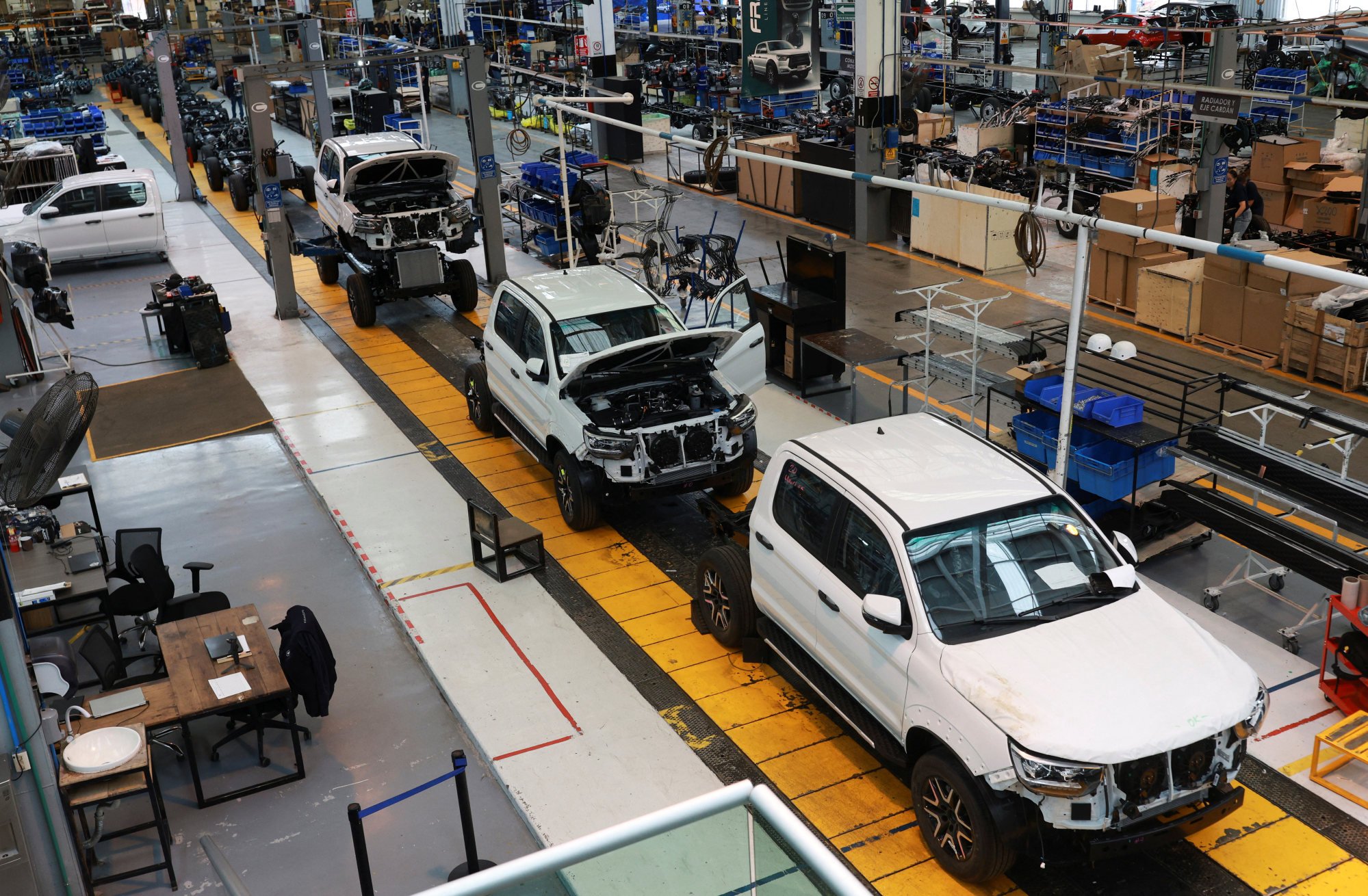China on Thursday condemned Mexico's plan to sharply raise import tariffs on automobiles and other goods from countries with which Mexico does not have trade agreements, calling the measures discriminatory and saying they were the result of outside pressure.
Foreign Affairs Ministry spokesperson Lin Jian told reporters Beijing "firmly rejects moves that are taken under coercion to constrain China or undermine China's legitimate rights and interests under any pretext".
"We will firmly protect our rights and interests in light of the developments of the situation," Lin added, stressing that China "advocates a universally beneficial and inclusive economic globalisation" and opposes all forms of protectionism.
Do you have questions about the biggest topics and trends from around the world? Get the answers with SCMP Knowledge, our new platform of curated content with explainers, FAQs, analyses and infographics brought to you by our award-winning team.
The comments followed Mexico's Wednesday announcement that the government had submitted a proposal to Congress seeking tariff increases of up to 50 per cent on selected imports, with Chinese products directly in the crosshairs.
Mexican President Claudia Sheinbaum's government said the plan was necessary to "protect hundreds of thousands of local jobs" in strategic sectors such as automobiles, steel, textiles and apparel.
The tariffs would affect about US$52 billion in imports, or 8.6 per cent of Mexico's total, according to the country's Economy Secretariat.
The proposal, which is expected to pass given Sheinbaum's congressional majority, comes amid mounting US pressure on other countries to align their trade policies with Washington's increasingly confrontational stance towards Beijing.

As the Post reported last month, Mexican officials were preparing to fold the tariff increases into the 2026 budget, due to Congress early this month as part of a broader "Plan Mexico" strategy.
The initiative combines trade protection measures with new investment in industrial estates and manufacturing projects, moves aimed at reducing dependence on Asian supply chains and tackling a budget deficit that climbed to nearly 6 per cent of gross domestic product last year.
Sheinbaum unveiled the proposal a week after meeting US Secretary of State Marco Rubio in Mexico City, where commerce and security were high on the agenda.
US President Donald Trump has repeatedly warned Mexico against becoming a back door for Chinese goods entering the US under the US-Mexico-Canada Agreement, threatening tariffs of up to 250 per cent on cars built by Chinese carmakers in northern Mexico.
Mexico has become one of China's largest overseas markets for vehicles, with Chinese manufacturers claiming nearly a third of the country's light vehicle sales in 2024 after virtually no presence a decade earlier.
That rapid growth, coupled with surging imports of low-cost e-commerce goods from platforms such as Shein and Temu, has stirred concern among Mexican producers already struggling under US protectionist moves.
In January, Mexico imposed a 19 per cent levy on low-value parcels from such platforms. The rate was raised to 33.5 per cent in July in what officials described as an effort to close customs loopholes and address Washington's concerns over cheap imports flooding the North American market.
The proposed tariffs now extend that approach to high-value sectors. Electric vehicles would see rates jump to 50 per cent from the current 15 to 20 per cent. Steel imports would face duties of 20 to 50 per cent, while textiles and apparel could also be taxed at up to 50 per cent.
Diego MarroquIn Bitar, a fellow at the Washington-based Center for Strategic and International Studies (CSIS), said Mexico's decision reflects both domestic protectionism and geopolitical calculation, with the government seeking to shield industries such as autos and textiles from what they view as unfair competition, while also responding to mounting US pressure.
"What once was one of the most open economies is turning increasingly protectionist," he said, pointing to Mexico's anxieties over Chinese overcapacity and the looming 2026 review of the US-Mexico-Canada Agreement (USMCA).
Beijing's warning that it would "firmly protect" its interests may carry more rhetorical than practical weight, MarroquIn Bitar noted. Unlike some Latin American peers, Mexico has not joined China's Belt and Road Initiative and holds little China-linked debt, limiting Beijing's leverage.
"It's perfectly fine for Mexico to increase their tariff levels within World Trade Organization bounds," he said. "China has other mechanisms outside the WTO to exert pressure, but Mexico's close ties with Washington and Ottawa work in its favour."
MarroquIn Bitar added that the tariff proposal also positions Mexico strategically for the USMCA review, when rules for autos and electric vehicles are expected to be a central flashpoint next year.
The "China factor", he added, is expected to dominate the USMCA review, with Washington pushing for stricter auto and electric vehicle content rules and greater safeguards against transshipment.
"What Mexico has done is the first step" towards a North American model where trade flows more freely within the bloc but becomes "increasingly difficult for other countries to enter", he said.
More Articles from SCMP
Why did Harvard top mathematician Liu Jun leave the US for China?
Trump, a trail of diplomacy and a possible trip to China to resolve the trade war
UBS says its managed assets in the Asia-Pacific region recently surpassed US$1 trillion
ONE Championship: strawweight world champ Hemetsberger ‘sure’ Buntan rematch will happen
This article originally appeared on the South China Morning Post (www.scmp.com), the leading news media reporting on China and Asia.
Copyright (c) 2025. South China Morning Post Publishers Ltd. All rights reserved.
Post a Comment